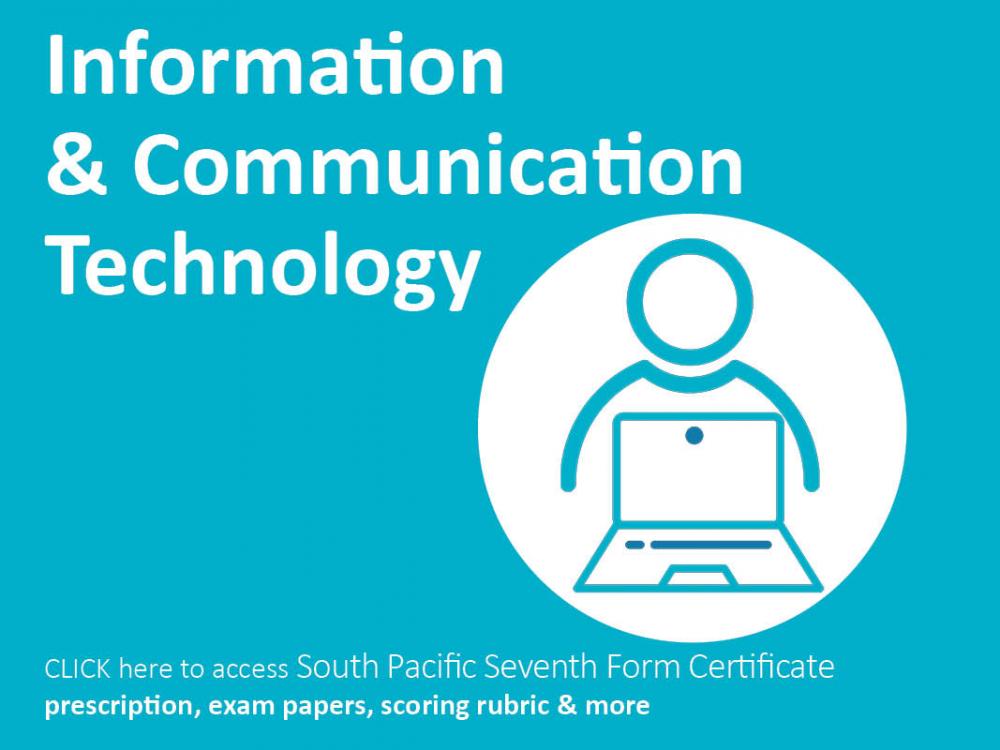
SPFSC Syllabus
(1.49 MB)
2022 ICT Scoring Rubric
(460.91 KB)
2021 ICT Scoring Rubric
(553.55 KB)
2020 ICT Scoring Rubric
(392.24 KB)
2019 ICT Scoring Rubric
(716.47 KB)
2018 ICT Scoring Rubric
(606.68 KB)
2017 ICT Scoring Rubric
(218.46 KB)
This course is comparable in standard to other Year 13 courses available in the international field and prepares students who wish to continue their studies in ICT at a tertiary level.
This course is generic in its approach, acknowledging that there are multiple ways in ICT to reach a particular endpoint. Students should recognise this and be encouraged to be creative within the medium to ensure they are fully engaged in the course. By the end of this course, students should be able to:
- use ICT to produce appropriate solutions to a variety of IT problems and utilise effective ICT tools to reach that solution;
- recognise that ICT is a very large realm of knowledge and that further study in it will lead to greater specialisation in a narrowing field; and
- act as a responsible Digital Citizen who respects the law, the rights of others, and keeps safe in a digital world